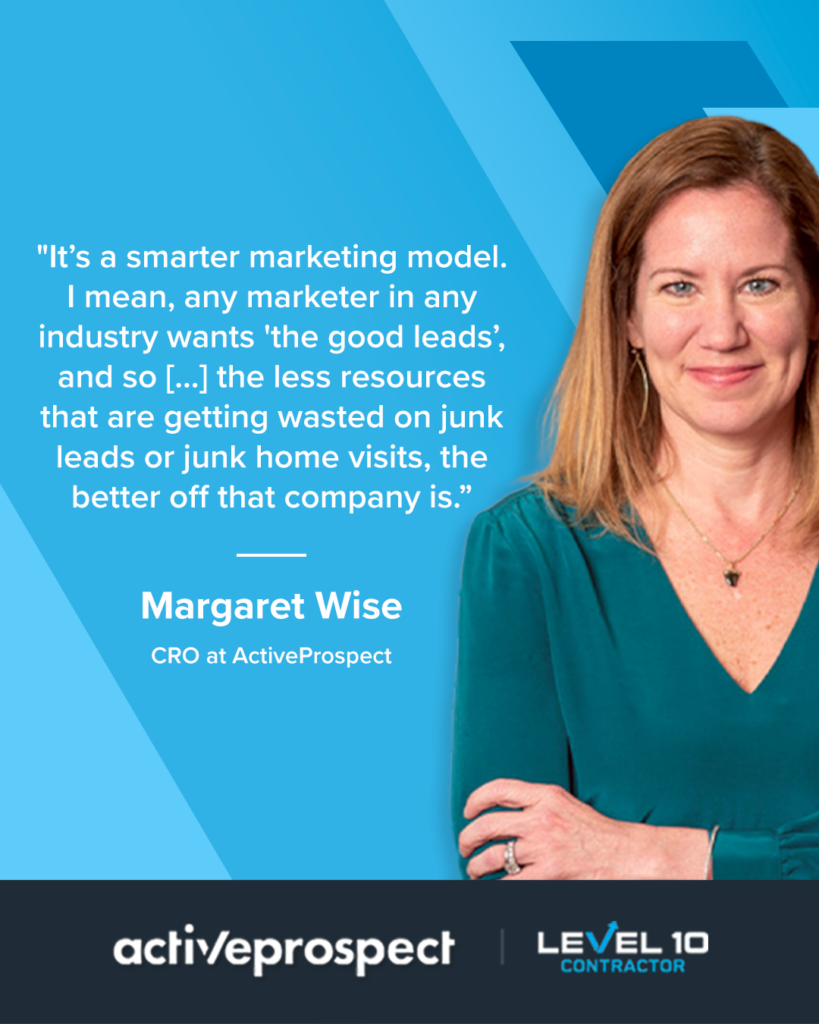The impact of new privacy laws on the lead generation game

As you may already know, there are some groundbreaking TCPA laws that were passed by the FCC last month that are going to shake up the lead generation game.
These laws are going to have a big impact on how lead aggregators operate and how lead buyers interact with them. But that’s not all. These new regulations will also have an impact on your own lead generation tactics. It’s time to get up to speed and stay in the loop. That’s where we come in!
Our very own Chief Revenue Officer, Margaret Wise, joined an exclusive interview with Rich Harshaw, CEO of Level 10 Contractor, on the Level 10 Contractor Daily Podcast, where they got to spill all the details, and the dos and don’ts to stay compliant with these new regulations. Ready to dive in? Let’s go!
An overview of the latest FCC ruling
How did we get to this point? The FCC saw the need to find measures to further protect consumers.
Comparison sites have relied on Ping Post for years to distribute leads. It’s a method where a consumer agrees to be contacted by any potential company listed on the marketing partner list (which can contain hundreds or thousands of different names). But, let’s face it, this often leads to unwanted and unexpected calls, including those annoying robo-calls. The FCC recognized the issue with the lead generation industry and they’re taking action.
The new regulations aim to ensure that consumers only receive calls they actually expect, from the people or entities they want to hear from, and regarding topics they actually care about. It’s a game-changer.
Once this enforcement is in place, consumers will no longer be subjected to calls pertaining to various topics stemming from a single lead form.
The proposed solution
How can lead aggregators – such as Angi – comply with the new regulations?
There are several strategies that lead aggregators might employ and they all require requesting additional information from consumers in order to either match them with a single offer or present them with multiple offers that they can specifically select.
This would give consumers full control over which company gets to receive their information. As a result, contractors purchasing leads from lead aggregators should expect to see higher-cost leads. However, with these higher prices come higher-quality leads.

The expected outcome
Contractors buying leads are expected to invest more in order to save more. By prioritizing resources towards higher-qualified and higher-intent leads, they avoid wasting time and money on junk leads and junk home visits.
What’s next
The FCC initially planned to enforce this within a span of 6 months, but they later extended it to 12 months before officially publishing the approved ruling.
The next crucial steps are as follows: the ruling will be published in the Federal Register, which is expected to occur soon. From that point, businesses will have 12 months to make the required adjustments to ensure compliance. This means we can anticipate the new regulations to take effect in January 2025.
How TrustedForm can help
TrustedForm provides independent lead certification that you can use for legal TCPA compliance. TrustedForm certificates provide documentation of consent and insights about the origin and authenticity of each lead.
By adding the TrustedForm web SDK to your web form, TrustedForm records the conversion event as it happens and provides proof of consent through a TrustedForm Certificate.
The unique certificate can be easily accessed and shared through a web URL which can be retained for up to 5 years. In addition to the certificate being delivered, data insights are provided around the lead event.

Listen to the full episode
Interview highlights
Introduction
“Welcome to the Level 10 Contractor Daily Podcast with Rich Harshaw, your daily dose of insights, information and inspiration to grow your remodeling or home services company to $10 million and beyond. […] I’ve got with me on the line today, Margaret Wise from ActiveProspect and we’re going to be talking about some changes to the TCPA regulations that have been enacted recently, not enforced.”
The reason why the FCC is proposing new regulations
“We’re having this conversation because the FCC looks out for consumers. And one of the biggest complaints consumers have is receiving unwanted calls and unexpected calls, particularly robocalls. They identified that the lead generation industry spawns a lot of unwanted calls. And so they are trying to really tighten up that consumers are only receiving calls that they expect to receive from the people or entity from whom they expect to receive a call regarding a topic they expect to receive a call.”
The result of the new regulations
“So these companies that are generating this lead and then reselling it shotgun style to multiple people, that’s a no go anymore, correct?”
“That’s 100% correct. That is a no go.”
“To me it seems like the fallout from this would be that if I’m an aggregator I can now sell this to fewer people than I used to. So therefore that lead is going to be more expensive. And then on the flip side for the contractor who’s purchasing the leads – that would be my audience who’s listening to this podcast right now – those folks are going to get a higher quality lead because it’s going to be less competitive.”
How lead aggregators can make adjustments to comply
“There’s a few ways that they might do this. So, one is Angi may ask you a little bit more information, which does create a little bit more friction in the consumer experience but it also means you’re a more qualified lead that then they are sending out. So they may qualify you a little bit more, they may change some of their agreements that they have with their buyers to better dial in specific leads that various buyers want, and potentially create some exclusive agreements like that.”
“The other thing that they can do is they could present offers in a few different ways that would satisfy the new ruling and that could look like they could get a little bit of information about you. They could on the back end. Now the technology doesn’t really exist this way yet, but this is what’s in motion and proposed is that they could collect some information from you and in the back end they’re pinging potential lead buyers and getting bids back. And then that winning bid could dynamically populate in that form. So you could fill some information out and you might wait a second or 2 seconds while this is happening on the back end and then it comes back and it says okay, we’re going to connect you with XYZ.”
“Now there’s two other potential scenarios that they could do in this case to do this. One might be they could say ‘would you like to be contacted by X’, you consent and then they might pop a little window that says ‘would you like to be contacted by somebody else as well?’ And you could cycle through and you could say ‘yes, I’d like another provider to contact me’ and you could go to the next one and that would be named and you could connect that as well. Select that as well.”
What’s changing for lead buyers
“As a contractor who’s purchasing leads from an aggregator, I should expect to see higher-cost leads on the front end but higher-quality leads as well.”
“Right. Higher cost and higher conversion.”
What’s changing for lead generators
“If I’m an individual contractor generating my own leads through my own website […], do I need to add some kind of checkbox or specific language on that form that says ‘by clicking this box I give you express permission to reach out to me’ or is it implied by them filling out the form?”
“They have always needed to have and continue to need to have express written consent.”
“How is it different now though?”
“This new ruling is providing additional clarification around express written consent, and […] now they’re referring to that as 1 to 1.”
Things to look out for
“So there’s another part of this ruling that affects everyone, whether you’re buying or generating your own, and that is a phrase that is called ‘logical and topical’. What does that mean? It means that the lead form that gets filled out and the follow up action that happens after that needs to be related to that interaction. […] Let’s say you’re first-party and you pull that into your CRM database. A year later […] you added a new service you offer, you can’t go back to that marketing lead and then start marketing them something that you did not collect the lead for.”
“The other thing to be aware of that affects everyone is EBR: Existing Business Relationship. This also applies to a degree of sending marketing messages depending if you have an existing business relationship.”
Phone calls and text messages are considered the same
“This is going to definitely apply to phone calls, whether automated or manual. It’s going to apply to text messaging, I assume.”
“Correct, yes. […] This recent ruling clarified that everything that applies to phone calls applies to text.”
How ActiveProspect can help
“So tell me a little bit about ActiveProspect, the organization that you work for.”
“We focus on providing technology that supports consent-based marketing. And we are very well-known for our product, TrustedForm. TrustedForm runs on your website, and it provides independent proof of the lead capture event. So it records what happens when that lead is captured and shows that consent was captured. You can use it to manage that consent language, to ensure that you are named in that consent language, or that it meets your legal or marketing needs there. It’s a script that runs on your website. It runs on the web page that you’re running your form on.”
“So I know this isn’t the same thing […], but this is almost similar, at least in nature, to recording a phone call. You’re not the phone company, but you’re recording. You’re providing this service of recording. In this case, the form fill interaction.”
“Yeah. That’s a great parallel. […] So, if the buyer was ever challenged by a consumer ‘you didn’t have consent’, the buyer could go back to the seller and say, ‘hey, can you provide that for me? Can you dig that up and provide it for me?’ And we provide that, right? We store it and we provide that. We can provide the accessibility. But part of this ruling now says that the buyers have to be in possession, prior to doing the outreach. So that means the buyers can no longer allow the sellers to handle it for them and then go to the seller if they need it. […] The buyers need to have the subscription and retain those certificates.”



